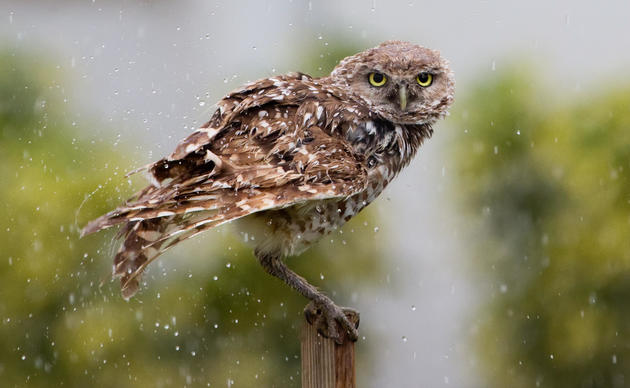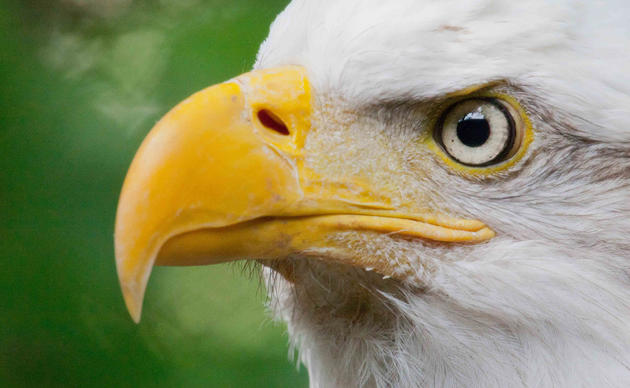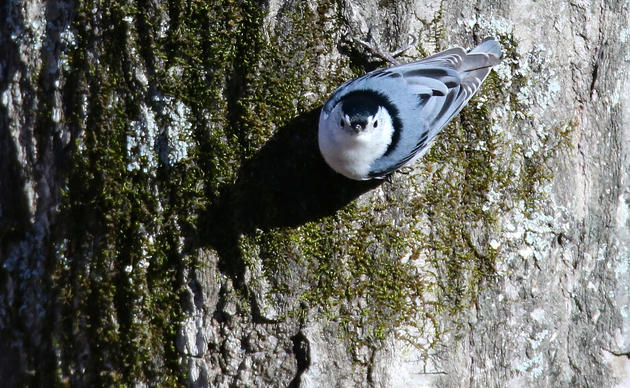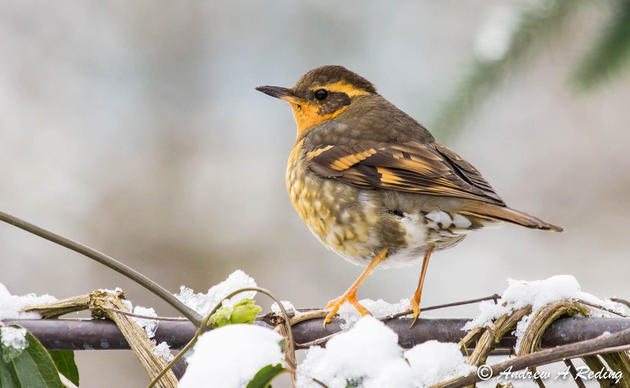Why I Support Cutting Carbon Pollution
"I am passionate about birds and the place communities of color occupy in the natural world. The two intersect in so many ways, and this is an unfortunate one: Both are under attack by climate change and suffer its effects first and disproportionately. Since we already are distressingly late in addressing this pressing environmental challenge, we cannot wait another minute to be serious about reducing carbon pollutants, especially with such a proven method offered by I-732." - Glenn Nelson, Journalist and Board Member, Audubon Washington
"I am a father, ornithologist, and teacher. I support I-732 because climate change is the number one threat to the future of biodiversity and human civilization, not to mention the more immediate threats of air pollution on our health. I-732 provides a proven path to reduction in carbon emissions (see the positive results a similar tax has had in British Columbia), while providing progressive revisions to our tax code which help our lowest income citizens. The science is clear: we cannot afford to dally any longer in reducing carbon emissions. Washington now has a unique opportunity to lead the way for the future of our children and all life on earth. Please join groups on both sides of the aisle to support I-732 in November." - Dr. Tim Billo, Professor Environmental Studies, University of Washington
"My support of I-732 is based for the most part on two potential aspects of a carbon tax based approach to greenhouse gas emissions rather than a cap and trade market. It’s also based on what I believe to be the most effective way to approach conserving our planet for future generations.
First, a carbon tax over time will affect individual behaviors and choices regarding energy use. Second, the infrastructure for collecting and managing a fuel tax does not have to be created; implementing a carbon tax is far simpler than a cap and trade market.
Individual choices are fundamental to slowing climate change. Stationary sources—power plants, factories, and the like—are already within current regulatory framework and federal and state climate legislation. In the arena of individual choices, vehicle use is responsible for as much, if not more, fuel combustion than stationary sources. A carbon tax, over time, will push individuals to make more conservative choices in fuel use in many ways such as more efficient vehicles, decreasing commute, use of public transit, and managing home energy use. Stationary source combustion will also be influenced over time to become more efficient with a carbon tax in place. A long-term and predictable tax on carbon will, over time, decrease individual and industrial fuel use and will allow the market to move to support this conservation.
The infrastructure for assigning and collecting taxes on carbon based fuel already exists. The infrastructure requirements and operational impact to air quality regulation come with a heavy cost. Testing for emissions and reductions is expensive and requires intense regulation. The current market of emissions testing cannot quickly support this level of testing. Inter-jurisdictional management of cap and trade is expensive and complex. Assigning, collecting, and distributing a carbon tax through (mostly) already existing infrastructure is far less burden and will result in quicker emission reductions than monetizing the emissions into a market.
I’m an engineer, so I’m predisposed to the above analytical approach, which leads me to support setting in place a carbon tax and beginning that process with I-732. I am also a mother and very invested in progress to manage climate effects so that my sweet children and their children have the continued blessings of our lovely planet." - Robin B. Priddy, PE, Past President Lower Columbia Basin Audubon, Eastern Regional Representative, Audubon Washington
"One of my favorite things to do each spring is to head out well before dawn and listen and watch for grouse. Oft-forgotten prey species, grouse, in particular lekking grouse, offer comedic relief in the midst of our decaying environment. Sadly, no less than six grouse species can be found on Audubon's list of climate sensitive birds - Greater Sage Grouse, Sharp-tailed Grouse, Ruffed Grouse, Dusky and Sooty (Blue) Grouse, and the Lesser Prairie Chicken. These birds are indicator species for the health of our forest, sagebrush, and prairie ecosystems - all of which are being degraded in part due to our warming climate. Amid continued habitat loss, the birds themselves are struggling to withstand decreased food resources, unexpected extreme weather, and new inter-species competition - all amplified by climate change. When I think about the things I can do to help the birds I love, paying a little bit extra at the pump and on my utility bill via a carbon tax seems like a small offering - a small offering with big, immediate, and lasting results. And perhaps I'll think twice about turning on the air-conditioning or making multiple trips to the store; perhaps I'll hike closer to home a little more often. We must encourage a societal change in behavior, and, most importantly, we must do it now." - Jen Syrowitz, Chapter Conservation Manager,Audubon Washington
"It’s funny how birds have a way of connecting us to the important things in life. My father-in-law loved hummingbirds. He put out feeders and kept them scrupulously clean and filled year round in a former steel town in eastern Ohio. The pleasure he took in watching the hummingbirds at these feeders was contagious. When we would arrive for a visit from Alaska, his grandchildren would help him clean and fill the feeders. He passed on his love of hummingbirds to all around him. When he died, it was inspiring to see his children and grandchildren adopt hummingbirds as the one item that always reminded them of Papa, as he was called. At our house, we have a hummingbird thermometer outside. Our children have hummingbird stickers on their water bottles and computers. One has three hummingbirds tattooed on her ankle. My husband donates money in honor of his father to Seward Park Audubon’s work around native plants and hummingbirds.
When Audubon’s climate report came out and I realized that Rufous Hummingbirds could lose 100 percent of their winter range due to climate change, it made me want to take immediate action to stop the effects of climate change. It brought the reality of a warming world home in a way that felt unacceptable to me. Ever since, for the sake of my children, I have taken every opportunity available to advocate for changes in climate policy. For me, supporting I-732 is the next opportunity to make sure I have done everything possible to make the future one where my children can continue to see hummingbirds and remember their grandfather’s love of them." - Gail Gatton, Executive Director, Audubon Washington
How you can help, right now
Be the Voice for Birds
Decision makers need to hear from you. Sign up for Audubon Washington's Action Alerts and you will have an opportunity to weigh in on proposals that impact birds.
Get Involved
Birds need YOU! Get involved in helping to preserve our birds and their habitats today. There is something for everyone!
Take Action on Climate Change
Does your decision maker know that climate change is number one threat to birds? Ask for their help to protect the birds, the places, and the planet we love.




